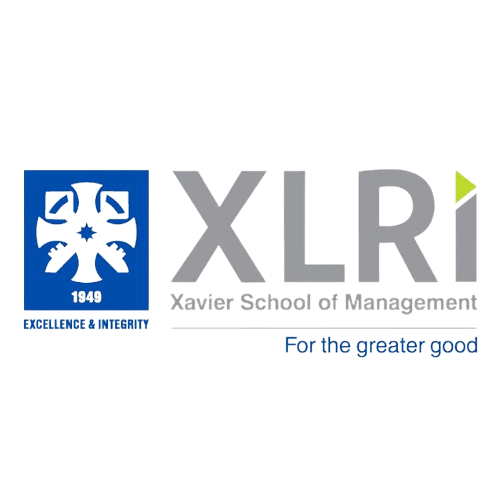Table of Contents
BBA in Supply Chain Management Overview
BBA in Supply Chain Management is an undergraduate program that focuses on managing the flow of goods, services, and information from suppliers to customers. The BBA Supply Chain Management program is designed to provide students with a comprehensive understanding of supply chain management principles and practices.
BBA Supply Chain Management is the coordination and management of all activities involved in the production and delivery of goods and services. It includes activities such as procurement, production, transportation, and distribution. Effective supply chain management can improve the efficiency and profitability of organizations.
The BBA in Supply Chain Management program is typically a four-year program that provides students with a strong foundation in business, management, and supply chain management principles. Students learn about the various stages of the supply chain, including sourcing, procurement, production, logistics, and distribution.
The BBA Supply Chain Management program typically includes a mix of classroom lectures, case studies, industry projects, and internships to provide students with practical skills and real-world experience. Students learn to use technology to manage the supply chain, analyze data to make informed decisions, and collaborate with suppliers, customers, and other stakeholders.
Graduates of the BBA Supply Chain Management program can pursue a wide range of careers in the field of supply chain management, including supply chain managers, logistics managers, procurement managers, inventory managers, transportation managers, and consultants. They can work in various industries such as retail, manufacturing, healthcare, and government agencies.
BBA in Supply Chain Management Highlights
Here are some of the highlights of BBA in Supply Chain Management:
- Comprehensive curriculum: BBA in Supply Chain Management covers a wide range of topics related to supply chain management, including logistics, inventory management, transportation, procurement, and distribution. The BBA Supply Chain Management curriculum is designed to provide students with a comprehensive understanding of the supply chain management process.
- Practical learning: BBA Supply Chain Management program combines theoretical concepts with practical applications such as case studies, industry projects, and internships. This allows students to gain practical skills and real-world experience that can be applied to their future careers.
- Industry-relevant skills: Students learn the latest technologies and tools used in supply chain management, such as enterprise resource planning (ERP) systems, transportation management systems (TMS), and inventory management software. They also learn analytical skills to make data-driven decisions.
- Career opportunities: Graduates of BBA in Supply Chain Management can pursue a wide range of careers in the field of supply chain management, including supply chain managers, logistics managers, procurement managers, inventory managers, transportation managers, and consultants. The demand for skilled supply chain professionals is high across various industries.
- Global perspective: BBA Supply Chain Management program provides a global perspective on supply chain management by covering topics such as global supply chain management, international logistics, and cross-border transportation. This prepares students to work in a global business environment.
- Professional development: BBA in Supply Chain Management programs offer opportunities for students to develop their professional skills through networking events, industry conferences, and certification programs. This helps students stay updated with the latest trends and developments in the field of supply chain management.
BBA in Supply Chain Management Admission Process
The admission process for BBA in Supply Chain Management may vary depending on the university or college. However, here are some general steps that are typically involved:
- Meet the eligibility criteria: Candidates must meet the eligibility criteria set by the university or college, which usually includes passing a 10+2 or equivalent examination from a recognized board with a minimum percentage of marks.
- Submit the application form: Candidates need to fill and submit the application form along with the required documents, such as academic records, identity proof, and passport-size photographs. Some universities may also require candidates to submit an entrance exam score.
- Entrance Exam: Many universities or colleges may conduct an entrance exam to evaluate the candidate’s aptitude for business and management. The exam may consist of multiple-choice questions and may cover topics such as quantitative aptitude, reasoning, and general awareness.
- Group Discussion and Personal Interview: Shortlisted candidates may be invited for a group discussion and personal interview to assess their communication skills, problem-solving ability, and leadership qualities.
- Merit List: Universities or colleges may prepare a merit list based on the candidate’s performance in the entrance exam, group discussion, and personal interview. Selected candidates will be notified of their admission.
- Fee payment: Finally, candidates who are offered admission need to pay the admission fee and complete the enrollment process to confirm their admission.
It is recommended to check the specific admission process and eligibility criteria of the university or college that you are interested in before applying.
BBA in Supply Chain Management Eligibility Criteria
The eligibility criteria for BBA in Supply Chain Management may vary depending on the university or college. However, here are some general eligibility criteria:
- Educational Qualification: Candidates must have completed a 10+2 or equivalent examination from a recognized board with a minimum percentage of marks (usually ranging from 50% to 60%). Some universities may also consider the candidate’s score in entrance exams such as the SAT, ACT, or other similar exams.
- Age Limit: There is generally no upper age limit for admission to the BBA Supply Chain Management. However, the minimum age requirement may vary from university to university. Usually, candidates should be at least 17 years old at the time of admission.
- Language proficiency: Proficiency in the English language is essential for admission to the program. Candidates may have to take an English language proficiency test such as TOEFL, IELTS, or PTE.
- Entrance Exam: Some universities or colleges may require candidates to take an entrance exam to evaluate their aptitude for business and management. The entrance exam may consist of multiple-choice questions and may cover topics such as quantitative aptitude, reasoning, and general awareness.
- Other requirements: Candidates may also have to submit other documents such as identity proof, passport-size photographs, and academic transcripts. Some universities may also require candidates to submit a personal statement or letter of recommendation.
It is important to note that eligibility criteria may vary from university to university. Candidates should check the specific eligibility criteria of the university or college they are interested in before applying.
BBA in Supply Chain Management PROS
BBA Supply Chain Management can provide many advantages for individuals interested in pursuing a career in this field. Some of the key advantages of a BBA in Supply Chain Management degree program are:
- In-depth understanding of supply chain management: A BBA in Supply Chain Management provides a comprehensive understanding of the end-to-end process of managing the flow of goods and services from the point of origin to the point of consumption. BBA Supply Chain Management includes knowledge of procurement, inventory management, logistics, transportation, and distribution.
- Wide range of career opportunities: Supply chain management is a rapidly growing field and graduates of BBA in Supply Chain Management can find a variety of career opportunities in industries such as manufacturing, retail, healthcare, and logistics.
- High demand for professionals with supply chain expertise: As businesses become increasingly global and supply chains become more complex, the demand for professionals with supply chain expertise continues to grow. A BBA in Supply Chain Management can position individuals for a successful career in this high-demand field.
- Development of key business skills: In addition to supply chain-specific knowledge, a BBA in Supply Chain Management can also provide students with a strong foundation in key business skills such as strategic planning, financial analysis, project management, and communication.
- Potential for high salary: Professionals with supply chain expertise are often highly valued within organizations, and a BBA in Supply Chain Management can position individuals for higher-paying roles such as supply chain manager, logistics manager, or operations manager.
BBA in Supply Chain Management Syllabus
Here is an example of a semester-wise breakdown of courses for a BBA in Supply Chain Management degree program:
First Year
Semester 1
- Introduction to Business
- Principles of Microeconomics
- Financial Accounting
- Business Mathematics
Semester 2
- Principles of Macroeconomics
- Managerial Accounting
- Business Statistics
- Business Communication
Second Year
Semester 3
- Operations Management
- Business Law
- Introduction to Marketing
- Supply Chain Analytics
Semester 4
- Principles of Management
- Business Ethics and Social Responsibility
- Financial Management
- Logistics Management
Third Year
Semester 5
- Purchasing and Supply Management
- Supply Chain Planning and Control
- Transportation and Distribution Management
- Strategic Management
Semester 6
- Supply Chain Risk Management
- Global Logistics and Supply Chain Management
- Supply Chain Technology and Innovation
- Internship or elective course
Fourth Year
Semester 7
- Capstone Project in Supply Chain Management
- Quality Management
- Supply Chain Sustainability
- Elective course
Semester 8
- Advanced Topics in Supply Chain Management
- Leadership and Team Building
- Business Research Methods
- Elective course
Note: This is just an example and the actual curriculum may vary depending on the institution.
BBA in Supply Chain Management Colleges in India
Top colleges of BBA in Supply Chain Management in Kolkata
Here are some top colleges in Kolkata that offer BBA Supply Chain Management degree programs:
- Indian Institute of Social Welfare and Business Management (IISWBM)
- Techno India University
- Brainware University
- The Neotia University
- NSHM Knowledge Campus
- Amity University Kolkata
- Swami Vivekananda University
- Seacom Skills University
- JIS University
- Adamas University
Top colleges of BBA in Supply Chain Management in Bangalore
Here are some top colleges in Bangalore that offer BBA in Supply Chain Management degree programs:
- Christ University
- Alliance University
- St. Joseph’s College of Commerce
- Jain University
- Garden City University
- Dayananda Sagar University
- REVA University
- IFIM College
- Acharya Bangalore B-School
- The Oxford College of Business Management
Top colleges of BBA in Supply Chain Management in Mumbai
Here are some top colleges in Mumbai that offer BBA in Supply Chain Management degree programs:
- Narsee Monjee Institute of Management Studies (NMIMS)
- KJ Somaiya College of Arts and Commerce
- Rizvi College of Arts, Science, and Commerce
- St. Xavier’s College, Mumbai
- Mumbai University
- MET Institute of Management
- Thakur Institute of Management Studies and Research
- SIES College of Management Studies
- Vivekanand Education Society’s Institute of Management Studies and Research
- Lala Lajpatrai College of Commerce and Economics
It’s important to note that this is not an exhaustive list and there may be other reputable institutions in Mumbai that offer BBA Supply Chain Management programs as well. It’s recommended that you research and compare different colleges based on their curriculum, faculty, accreditation, placement opportunities, and other factors before making a decision.
BBA in Supply chain management Distance Learning
BBA in Supply Chain Management is a degree program that focuses on the management of the flow of goods and services from suppliers to customers. The BBA Supply Chain Management program covers various topics such as logistics management, procurement, inventory management, transportation management, and supply chain analytics.
Distance learning or online education programs are designed for students who prefer to study from home or work while managing their personal and professional commitments. Many universities and colleges offer distance learning programs in Supply Chain Management that allow students to earn their degree online.
Here are some of the benefits of pursuing a BBA in Supply Chain Management through distance learning:
- Flexibility: Distance learning programs offer the flexibility to study at your own pace and according to your own schedule. This makes it easier for working professionals to balance their work and studies.
- Accessibility: With online programs, students can access course materials from anywhere, anytime, as long as they have an internet connection.
- Affordability: Online programs are generally more affordable than traditional on-campus programs, and students can save on costs such as transportation, accommodation, and textbooks.
- Career Opportunities: A BBA in Supply Chain Management provides students with the knowledge and skills required for a successful career in supply chain management, logistics, and operations management. Graduates can find jobs in various industries such as manufacturing, retail, transportation, and consulting.
- Networking: Online programs allow students to interact with classmates and instructors from different parts of the world, creating opportunities to build a diverse professional network.
Overall, pursuing a BBA in Supply Chain Management through distance learning can be a great option for those who want to advance their career in supply chain management while maintaining their personal and professional commitments.
BBA in Supply Chain Management Scope
The field of supply chain management is growing rapidly, and there is a high demand for professionals with a degree in Supply Chain Management. The future scope of a BBA in Supply Chain Management is promising, and graduates can expect to find job opportunities in various industries.
Here are some of the potential career opportunities for graduates with a BBA in Supply Chain Management:
- Logistics Manager: A logistics manager is responsible for managing the transportation and storage of goods, ensuring that they reach their destination on time and within budget.
- Supply Chain Analyst: A supply chain analyst uses data and analytics to optimize the supply chain, identify opportunities for improvement, and make strategic decisions.
- Purchasing Manager: A purchasing manager is responsible for managing the procurement of goods and services, negotiating contracts with suppliers, and ensuring that the organization gets the best value for money.
- Operations Manager: An operations manager oversees the day-to-day operations of a business, ensuring that production targets are met and that products and services are delivered on time and within budget.
- Consultant: A supply chain management consultant works with businesses to identify areas of improvement in their supply chain and develops strategies to optimize their operations.
Overall, the future scope of a BBA in Supply Chain Management is bright, and graduates can expect to find job opportunities in various industries. As supply chain management becomes increasingly important in the global economy, the demand for professionals with a degree in Supply Chain Management is expected to grow.
BBA in Supply Chain Management Job Opportunities
BBA in Supply Chain Management is a specialized undergraduate program that equips students with knowledge and skills to manage the flow of goods and services from the point of origin to the point of consumption. Graduates with a degree in BBA Supply Chain Management can pursue various career paths in industries such as manufacturing, retail, healthcare, logistics, and consulting. Here are some job opportunities and career prospects for BBA in Supply Chain Management graduates:
- Supply Chain Manager: A supply chain manager oversees the entire supply chain process, from procurement to delivery. They ensure that all processes run smoothly and efficiently, and manage the relationships with suppliers, customers, and logistics providers.
- Procurement Manager: A procurement manager is responsible for acquiring goods and services needed by an organization. They manage the purchasing process, negotiate with suppliers, and ensure that goods are purchased at the best possible price and quality.
- Logistics Manager: A logistics manager is responsible for managing the transportation, warehousing, and distribution of goods. They ensure that products are delivered to customers on time and manage the transportation network to reduce costs and optimize efficiency.
- Operations Manager: An operations manager oversees the day-to-day operations of a company. They manage the production process, quality control, inventory management, and distribution of goods.
- Consultant: A consultant provides expert advice to organizations on supply chain management issues. They identify opportunities for improvement and help companies optimize their supply chain operations.
- Analyst: An analyst uses data and analytics to optimize supply chain operations. They use tools such as forecasting, optimization, and simulation to identify areas for improvement and make data-driven decisions.
- Purchasing Agent: A purchasing agent is responsible for buying goods and services for an organization. They negotiate with suppliers, analyze price quotes, and ensure that products meet quality and delivery requirements.
- Warehouse Manager: A warehouse manager is responsible for managing the storage and movement of goods in a warehouse. They oversee the receiving, storing, and shipping of products and manage inventory levels.
Overall, a BBA in Supply Chain Management degree provides students with a strong foundation in business and supply chain management, which can lead to various job opportunities and career growth in the field.
BBA in Supply Chain Management Conclusion
In conclusion, pursuing a BBA in Supply Chain Management through distance learning can be a great option for those who want to advance their career in supply chain management while maintaining their personal and professional commitments. This degree program provides students with the knowledge and skills required for a successful career in supply chain management, logistics, and operations management. Graduates can expect to find job opportunities in various industries such as manufacturing, retail, transportation, and consulting.
As supply chain management becomes increasingly important in the global economy, the demand for professionals with a degree in Supply Chain Management is expected to grow. With the flexibility, accessibility, affordability, and networking opportunities that online programs offer, pursuing a BBA in Supply Chain Management through distance learning is a great way to take advantage of these opportunities and pave the way for a successful career in supply chain management.
Frequently Asked Questions about BBA in Supply Chain Management
Q. What is supply chain management?
Ans. Supply chain management is the management of the flow of goods and services from suppliers to customers, including the management of transportation, procurement, inventory, and logistics.
Q. What can I do with a degree in supply chain management?
Ans. A degree in supply chain management can lead to careers in logistics, operations management, procurement, transportation management, and supply chain analytics.
Q. Is a degree in supply chain management in demand?
Ans. Yes, the demand for professionals with a degree in supply chain management is growing as businesses increasingly recognize the importance of optimizing their supply chains to remain competitive in the global economy.
Q. Can I pursue a BBA in Supply Chain Management through distance learning?
Ans. Yes, many universities and colleges offer distance learning or online programs in supply chain management, providing students with the flexibility to study at their own pace and according to their schedules.
Q. What skills are needed for a career in supply chain management?
Ans. Skills that are essential for a career in supply chain management include analytical skills, problem-solving skills, communication skills, and project management skills.
Q. What are some of the key challenges in supply chain management?
Ans. Some of the key challenges in supply chain management include managing global supply chains, managing inventory levels, managing demand volatility, managing transportation and logistics, and managing supplier relationships.
Q. What are some of the benefits of optimizing the supply chain?
Ans. Optimizing the supply chain can lead to some benefits, including reduced costs, increased efficiency, improved customer satisfaction, better risk management, and improved sustainability.
Q. How is technology changing the field of supply chain management?
Ans. Technology is playing an increasingly important role in supply chain management, with advancements in areas such as automation, artificial intelligence, blockchain, and the Internet of Things (IoT) driving improvements in efficiency, transparency, and agility.
Q. How can supply chain management contribute to sustainability?
Ans. Supply chain management can contribute to sustainability by reducing waste, reducing carbon emissions, promoting ethical sourcing and production practices, and promoting the circular economy.
Q. What are some of the emerging trends in supply chain management?
Ans. Some of the emerging trends in supply chain management include the use of big data and analytics, the adoption of agile and flexible supply chain strategies, the rise of e-commerce and Omni channel distribution, and the increasing importance of sustainability and social responsibility.


















